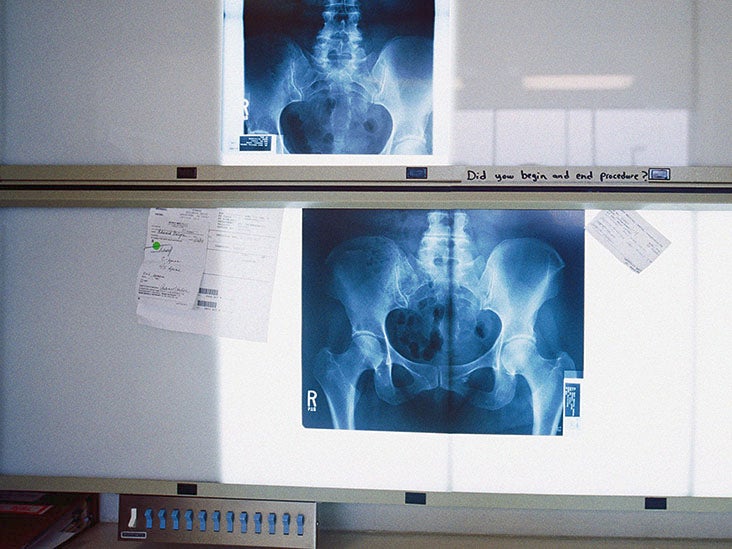Hand, foot, and mouth disease and rheumatoid arthritis: What to know - Medical News Today

Doctors do not believe that hand, foot, and mouth disease (HFMD) causes rheumatoid arthritis (RA). However, a small number of case reports suggest it may trigger reactive arthritis, a type of joint swelling and inflammation.
It
Doctors do not fully understand what causes RA, but researchers think genetic and environmental factors likely play a role. It is
People with RA, an autoimmune condition, are
Read on to learn more about HFMD and RA.
There is no strong scientific evidence that HFMD causes RA. Some research, however, suggests that people may develop joint pain after HFMD infection.
The coxsackievirus
Rarely, a person may develop joint pain or swelling following an HFMD infection.
This happens when the immune system overreacts to an infection, attacking the joint tissues. Doctors previously called this Reiter syndrome but now usually refer to it as reactive arthritis. A
Additionally, there is no research linking RA and HFMD.
Scientists think that infections sometimes trigger RA in people who are genetically susceptible to the condition. For example, some studies suggest that the Epstein-Barr virus may contribute to the development of RA. People who are genetically predisposed to RA may respond differently to the Epstein-Barr virus than those who are not.
Much like the Epstein-Barr virus, it is possible that the coxsackievirus may also trigger RA. However, scientists have not conducted well-designed studies to test this possibility.
A person may also develop RA following an HFMD infection by mere coincidence. Having RA after HFMD does not necessarily mean that the virus caused it.
The symptoms of HFMD, RA, and reactive arthritis include the following.
Symptoms of HFMD
People with HFMD may experience:
- fever and feeling sick
- flu-like symptoms
- sores on or around the mouth
- a rash on the feet or hands that may spread to other areas, such as the genitals or elbows
- increased crying in babies and young children
There is no specific treatment for HFMD, and it usually gets better on its own in a week or two. However, it is important to manage symptoms, prevent dehydration by drinking plenty of water, and stay home from work or school.
Symptoms of RA
People who develop joint pain after HFMD may worry that they have RA. It is not possible to distinguish RA from other types of arthritis, such as reactive arthritis, based on symptoms alone.
Some symptoms of RA include:
Symptoms of reactive arthritis
RA typically causes pain in multiple joints, while reactive arthritis may cause pain in just one joint.
Symptoms of reactive arthritis include:
Doctors
If a doctor thinks a person may have RA, they will also diagnose based on symptoms, medical history, and lab tests. No single test can conclusively diagnose RA. Some tests they
Learn more about how doctors diagnose RA.
The long-term effects of RA and HFMD vary.
RA and reactive arthritis effects
RA is a progressive, chronic condition. This means it is a long-term disease that may gradually worsen over time.
As RA progresses, it may attack other healthy tissue in the eyes, nerves, and organs. This can cause infections, chronic pain, vision problems, and other health issues such as cardiovascular disease and lung involvement. It also increases a person's risk of certain cancers.
Unlike RA, reactive arthritis usually goes away within 3–12 months.
HFMD effects
Most people with HFMD recover on their own. However, sometimes HFMD can affect the central nervous system, heart, or other important organs. This increases the risk of serious complications, especially in babies and young children.
A 2021 study tracked outcomes in people hospitalized with HFMD. Over the follow-up period of a median of 4.3 years, neurodevelopmental and similar complications were common in the group with severe HFMD, with 25% developing neurological abnormalities.
People who had cardiorespiratory failure also had higher rates of long-term complications. According to the study, 57% of these people showed brain abnormalities on an MRI, and 71% had motor skill difficulties.
A person should contact a doctor if:
- they have symptoms of HFMD
- symptoms of HFMD do not clear within 2 weeks
- they become very ill with HFMD
- they develop joint pain with HFMD
- they have RA and develop HFMD
Hand, foot, and mouth disease (HFMD) usually resolves on its own without any serious side effects. In rare cases, people may develop rheumatoid arthritis (RA) after HFMD. However, this does not mean HFMD caused RA. People may also get reactive arthritis after HFMD.
Researchers do not fully understand the cause of RA. It is possible that some viruses may play a role in its development, and certain infections can trigger the condition in people predisposed to RA.
People who think they may have arthritis or HFMD should contact a doctor.
Comments
Post a Comment